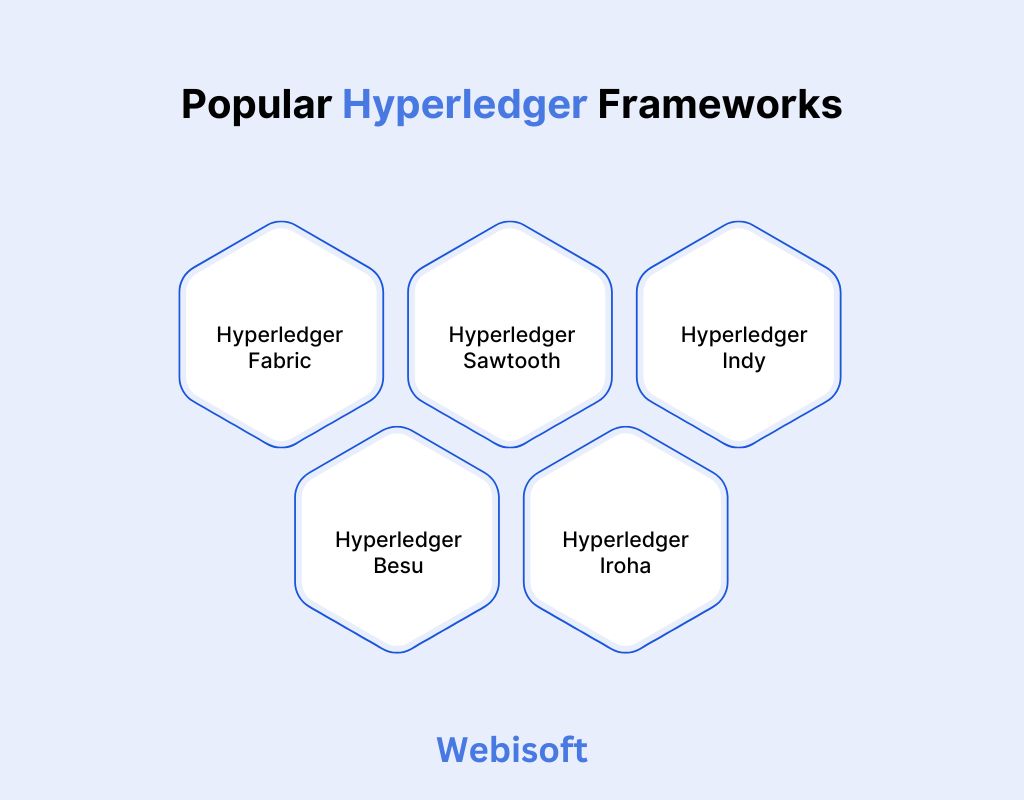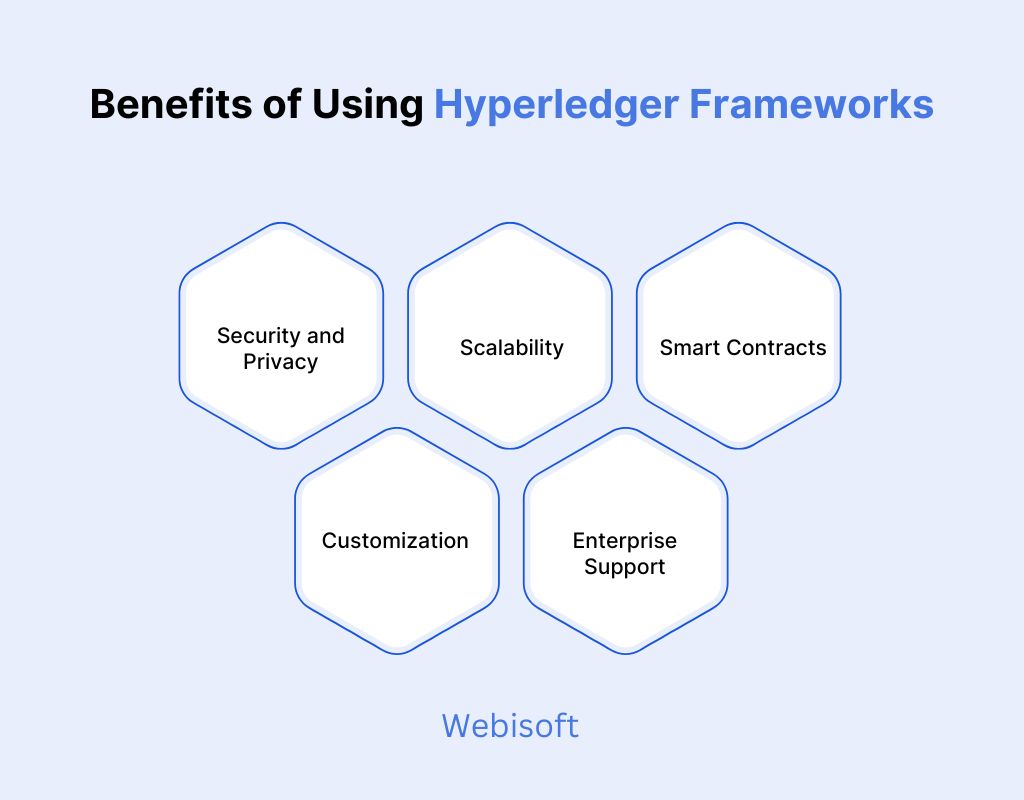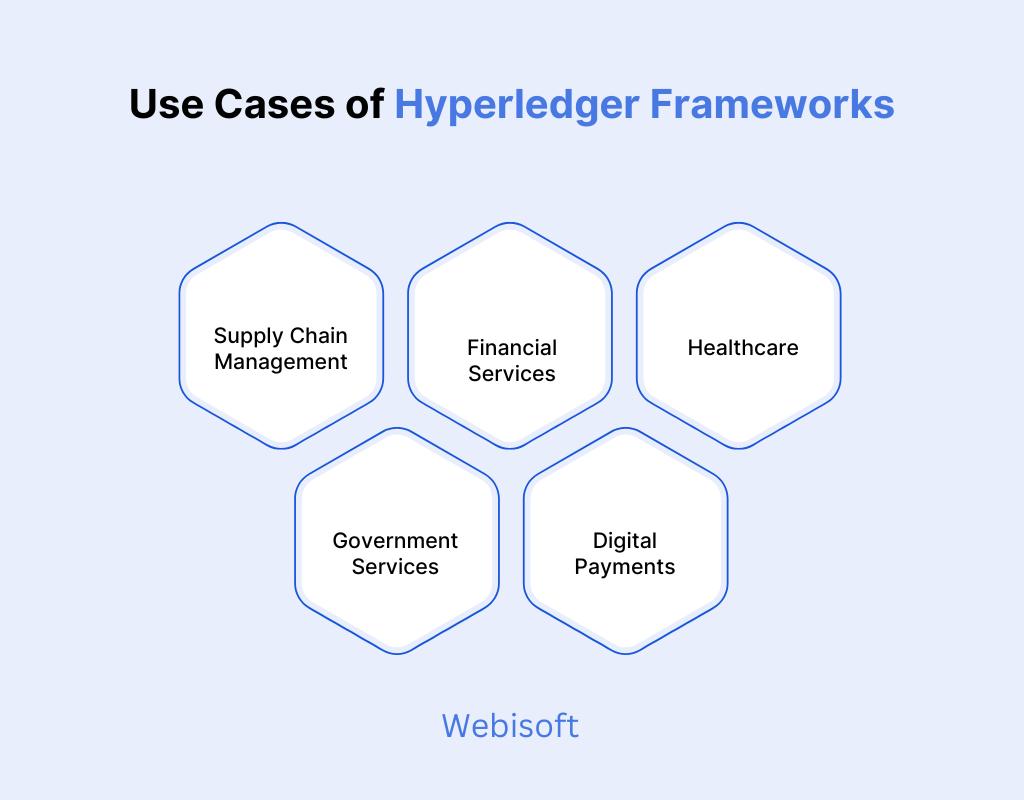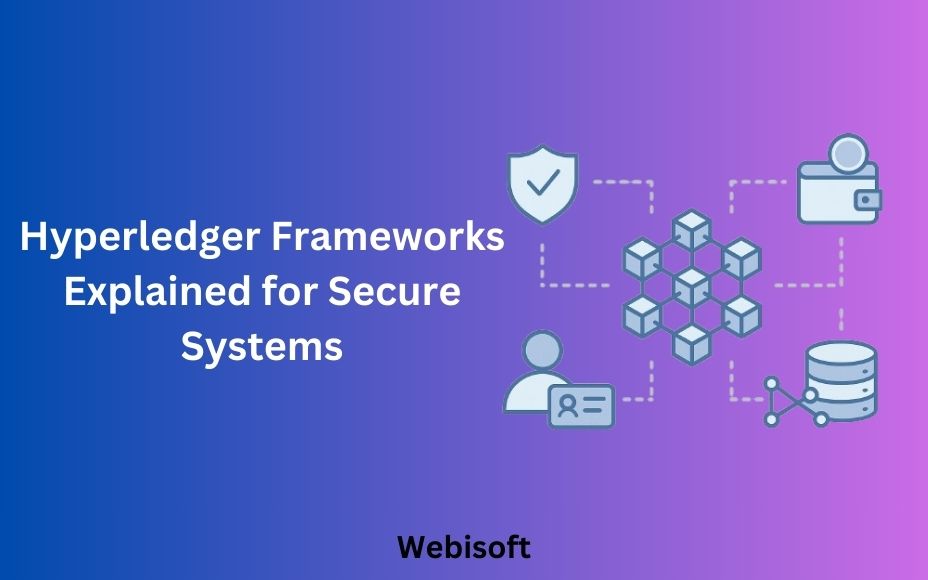Businesses need secure and scalable blockchain solutions. Many industries face challenges in managing data integrity, security, and transparency. Public blockchains do not always meet the needs of enterprises due to privacy concerns.
A controlled environment is necessary for handling sensitive transactions. Hyperledger frameworks provide permissioned blockchain solutions that address these issues.
Hyperledger is an open-source project hosted by the Linux Foundation. It offers a collection of frameworks designed for enterprise use. These frameworks support different use cases and technical requirements. Each has unique features tailored to specific business needs.
Contents
- 1 What Are Hyperledger Frameworks?
- 2 Popular Hyperledger Frameworks
- 3 Benefits of Using Hyperledger Frameworks
- 4 Use Cases of Hyperledger Frameworks
- 5 Choosing the Right Hyperledger Framework
- 6 Conclusion
- 7 FAQs on Hyperledger Frameworks
- 7.1 1. What are Hyperledger frameworks?
- 7.2 2. How is Hyperledger Fabric different from other frameworks?
- 7.3 3. What makes Hyperledger Sawtooth a good choice?
- 7.4 4. How does Hyperledger Indy support digital identity management?
- 7.5 5. What is Hyperledger Besu, and why do businesses use it?
- 7.6 6. How does Hyperledger Iroha help in blockchain development?
- 7.7 7. What are the benefits of using Hyperledger frameworks?
- 7.8 8. How do businesses choose the right Hyperledger framework?
What Are Hyperledger Frameworks?
Hyperledger frameworks are blockchain platforms designed for businesses. They provide tools to build secure, private, and scalable distributed ledger systems. Unlike public blockchains, Hyperledger frameworks use permissioned networks. This means that only authorized participants can access and validate transactions.
Hyperledger frameworks support industries such as finance, healthcare, supply chain, and manufacturing. They help organizations track assets, improve security, and automate business processes. Each framework serves different functions, allowing companies to choose based on their requirements.
Popular Hyperledger Frameworks

1. Hyperledger Fabric
Hyperledger Fabric is one of the most widely used frameworks. It is modular, meaning businesses can customize components based on their needs. It allows private transactions and confidential contracts, making it suitable for industries handling sensitive data.
Fabric supports smart contracts, called chaincode, which automate processes. It also provides high scalability and performance, making it ideal for financial services and supply chain management.
This framework offers multiple consensus algorithms, making it flexible for businesses with different security and performance needs. Organizations in banking, healthcare, and supply chain industries use Fabric for secure and efficient transaction processing.
2. Hyperledger Sawtooth
Hyperledger Sawtooth focuses on flexibility and security. It separates the application layer from the core system, allowing businesses to develop applications without understanding complex blockchain concepts.
Sawtooth uses a consensus mechanism called Proof of Elapsed Time (PoET). This reduces the energy consumption required for validation, making it efficient for enterprise applications. It is often used in supply chain tracking and digital asset management.
This framework supports smart contracts, allowing businesses to define and enforce business rules automatically. It also integrates with existing enterprise systems, reducing the cost of implementation.
3. Hyperledger Indy
Hyperledger Indy is designed for digital identity management. It provides a decentralized identity system that allows users to control their personal information. Organizations can use Indy to verify identities securely without relying on a central authority.
This framework ensures privacy by giving users control over their credentials. It is commonly used for self-sovereign identity applications.
Indy helps in developing secure identity solutions where individuals can authenticate themselves without sharing excessive personal information. Governments and financial institutions use it for digital identity verification.
4. Hyperledger Besu
Hyperledger Besu is an Ethereum-based blockchain framework. It supports both public and private networks. Businesses looking for Ethereum compatibility often use Besu to deploy permissioned networks.
It offers advanced privacy and permissioning features, making it suitable for financial institutions. Besu also allows integration with Ethereum-based applications and smart contracts.
This framework is beneficial for enterprises that require interoperability with Ethereum networks. Businesses in decentralized finance and asset tokenization frequently adopt Besu.
5. Hyperledger Iroha
Hyperledger Iroha is simple and efficient. It is designed for easy integration into existing infrastructure. It offers a straightforward permission system, making it suitable for managing digital assets.
Iroha is often used in banking and financial services. Its unique consensus algorithm, called YAC (Yet Another Consensus), ensures quick transaction finalization.
The framework provides built-in commands for handling transactions and managing permissions, making it easy for developers to implement blockchain-based solutions.
Benefits of Using Hyperledger Frameworks

1. Security and Privacy
Hyperledger frameworks provide a controlled environment where businesses can share data securely. Unlike public blockchains, they allow only authorized participants to access and validate transactions. This reduces the risk of unauthorized access and data breaches.
2. Scalability
Enterprises require blockchain solutions that can handle a large volume of transactions. Hyperledger frameworks support high throughput, ensuring smooth operations even with increased demand.
3. Smart Contracts
Hyperledger frameworks allow businesses to automate processes using smart contracts. These contracts execute transactions automatically when predefined conditions are met. This reduces manual effort and improves efficiency.
4. Customization
Different industries have unique needs. Hyperledger frameworks offer modular structures, allowing businesses to choose features that match their requirements. Organizations can customize consensus mechanisms, identity management, and transaction rules.
5. Enterprise Support
Hyperledger frameworks are backed by major technology companies and the Linux Foundation. This ensures continuous development, security updates, and enterprise-grade support.
Use Cases of Hyperledger Frameworks

1. Supply Chain Management
Businesses use Hyperledger frameworks to track goods from production to delivery. This improves transparency and reduces fraud. Hyperledger Fabric and Hyperledger Sawtooth are commonly used for supply chain solutions.
2. Financial Services
Banks and financial institutions use Hyperledger frameworks for secure transactions and data management. Hyperledger Fabric and Hyperledger Besu are widely adopted for these applications.
3. Healthcare
Healthcare providers use Hyperledger Indy for managing patient identities. It ensures privacy while allowing secure access to medical records.
4. Government Services
Governments implement Hyperledger frameworks for secure voting systems, digital identity verification, and record-keeping. These solutions help prevent fraud and improve efficiency.
5. Digital Payments
Businesses use Hyperledger frameworks to develop secure and fast digital payment systems. Hyperledger Fabric supports high-volume transaction processing, making it useful for digital banking solutions.
Choosing the Right Hyperledger Framework
Each Hyperledger framework serves a specific purpose. Businesses should choose based on their requirements:
- For private transactions and scalability: Hyperledger Fabric
- For supply chain tracking: Hyperledger Sawtooth
- For digital identity management: Hyperledger Indy
- For Ethereum compatibility: Hyperledger Besu
- For simple digital asset management: Hyperledger Iroha
Conclusion
Hyperledger frameworks provide powerful blockchain solutions for businesses. They offer security, scalability, and customization, making them suitable for various industries. Whether managing supply chains, financial transactions, or digital identities, Hyperledger frameworks provide reliable and efficient solutions.
Understanding the strengths of each framework helps businesses implement blockchain technology effectively. Organizations looking for a permissioned blockchain solution can benefit from choosing the right Hyperledger framework for their needs.
FAQs on Hyperledger Frameworks
1. What are Hyperledger frameworks?
Hyperledger frameworks are blockchain platforms designed for businesses. They provide secure, private, and scalable solutions using permissioned blockchain networks. Unlike public blockchains, only authorized participants can access and validate transactions.
2. How is Hyperledger Fabric different from other frameworks?
Hyperledger Fabric is modular and flexible. Businesses can customize its components based on their needs. It supports smart contracts, private transactions, and multiple consensus mechanisms. This makes it useful for industries like finance, healthcare, and supply chain management.
3. What makes Hyperledger Sawtooth a good choice?
Hyperledger Sawtooth separates the application layer from the core system. This helps businesses develop applications without deep blockchain knowledge. It uses Proof of Elapsed Time (PoET) for validation, which reduces energy consumption. Many industries use it for digital asset tracking and supply chain management.
4. How does Hyperledger Indy support digital identity management?
Hyperledger Indy provides a decentralized identity system. Users control their personal information without depending on a central authority. Organizations use it for secure identity verification in banking, healthcare, and government services.
5. What is Hyperledger Besu, and why do businesses use it?
Hyperledger Besu is an Ethereum-based blockchain framework. It works with both public and private networks. Businesses choose it for Ethereum compatibility, financial services, and decentralized finance (DeFi) applications.
6. How does Hyperledger Iroha help in blockchain development?
Hyperledger Iroha is simple and efficient. It provides an easy-to-use permission system and built-in commands. Many financial institutions use it for digital asset management and transaction processing.
7. What are the benefits of using Hyperledger frameworks?
Hyperledger frameworks offer security, scalability, and automation. They help businesses track assets, improve transaction security, and use smart contracts for process automation. Companies can customize these frameworks based on their needs.
8. How do businesses choose the right Hyperledger framework?
The right framework depends on business needs.
- For private transactions: Hyperledger Fabric
- For supply chain tracking: Hyperledger Sawtooth
- For digital identity management: Hyperledger Indy
- For Ethereum compatibility: Hyperledger Besu
- For simple digital asset management: Hyperledger Iroha
